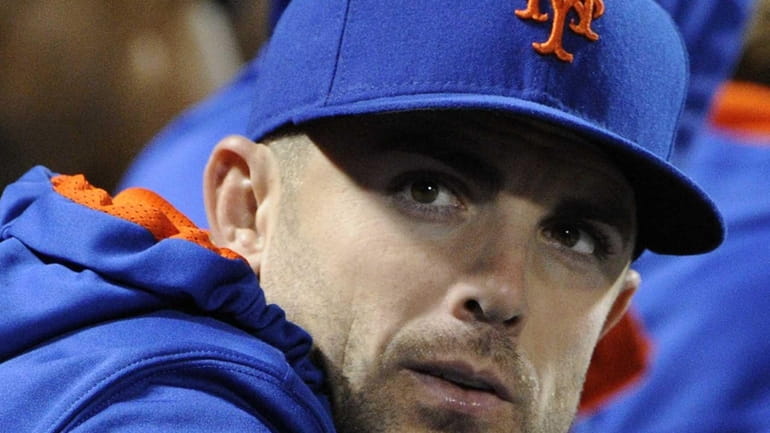David Wright opting for rehab rather than shoulder surgery

Mets third baseman David Wright looks on during a game against the Washington Nationals at Citi Field on Saturday, Sept. 13, 2014. Credit: Kathleen Malone-Van Dyke
David Wright spent the majority of the season trying to hit with ligaments that were so damaged that they could barely hold his left shoulder joint in place.
While offseason surgery could resolve the issue, it also would come with a lengthy recovery period, prompting Wright to attempt a six-week rehab program to strengthen the shoulder ligaments.
"Am I planning on getting [surgery]? No," Wright said on Wednesday, after the Mets game against the Nationals was rained out. "From my understanding, the rehab will take care of everything that I needed to take care of."
Wright will be re-examined around Nov. 1 to determine the effectiveness of his rehab, which he began last week.
"I'm planning to be able to rehab this thing in six weeks, get pretty good news, and then resume baseball stuff and a regular offseason," said Wright, who offered his first extensive comments about the injury.
From the time he jammed his shoulder into the muddy infield dirt at Citi Field, the result of a headfirst slide June 12 against the Brewers, Wright's season devolved into a nightmare that ultimately undermined the Mets' chances of a turnaround season.
Initially, doctors diagnosed Wright with a bruised rotator cuff, clearing him to play through the injury as long as he could manage the pain. Though he repeatedly played down the impact of his shoulder pain, his production cratered.
In 134 games, Wright hit just .269 with a career-low eight home runs, a reflection of his sudden loss of power.
The extent of the damage in his shoulder was revealed through a dye-contrast MRI exam performed only after Wright was shut down for the year on Sept. 9. Undergoing the procedure earlier in the season would have caused a potential absence at a time when Wright insisted on staying in the lineup.
Will Carroll, a sports injury expert, said the dye used in contrast MRIs can be invasive and cause pain because of the added pressure it could place on the shoulder joint. Also, as much as three days could be needed for the dye to clear the system, a process that can be uncomfortable.
Because of the potential for complications, Carroll said, teams generally avoid dye-contrast MRIs unless they're needed to determine whether surgery is required.
During the course of the season Wright said he "was just rapidly losing strength in my shoulder," which had not been given a chance to heal.
"The way it was explained to me when I got hurt, the ligaments and the cuff and everything else that holds my shoulder in place were damaged and stretched out," Wright said. "Therefore, the ligaments are not grabbing on the way they're supposed to be. They're stretched out and slightly damaged, the shoulder's rolling around and not stable."
Though the Mets will have an offseason to upgrade a team in jeopardy of a sixth straight losing season, they most likely will rely on improvement from players already on the roster. That includes Wright, who wrapped up the second season of a seven-year, $138-million extension.
In retrospect, Wright, 31, maintained it was a "pretty easy choice" to keep playing through the shoulder pain because he was physically capable of doing so. But he also acknowledged he was "hard-headed," a familiar script for Wright, who once played through a fractured back.
"I always say that I'm going to learn my lesson and I probably moving forward need to be a little more truthful to myself and the medical staff as to exactly what I'm feeling," Wright said. "But again, this is on me. When I don't go in there and don't say anything and push through things, that's kind of the way I've always been."
